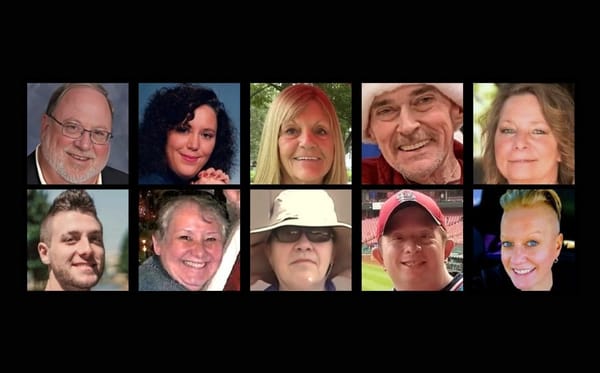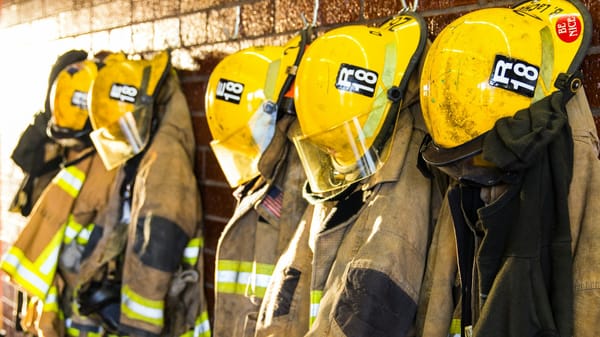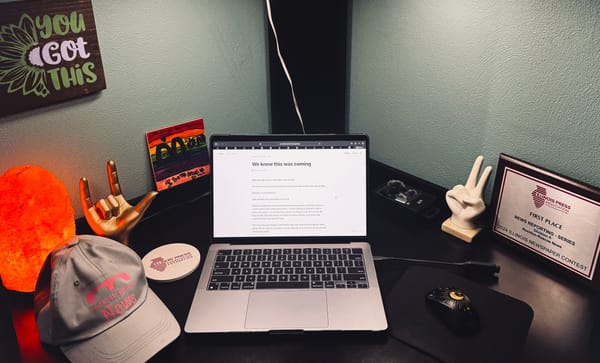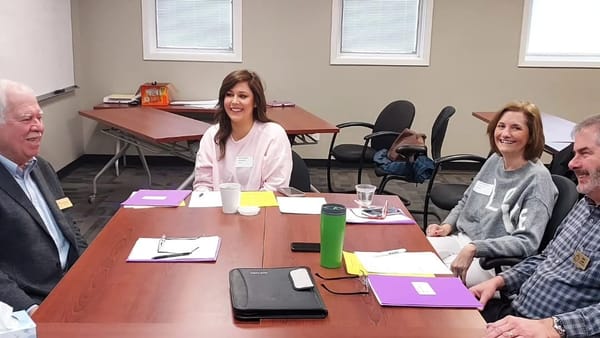Final part of drug awareness series presented by Live R.E.A.L.
Representatives said it's possible to recover from addiction and even overdoses.

This fall, Hononegah Community High School and Kinnikinnick School District 131 hosted a three-part series about the dangers of drugs, how to recognize the signs of drug use and addiction, and how to locate resources in your community.
Roscoe resident Bev Pomering and her family went through the nightmare of drug addiction and the death of their son and brother three years ago. Alex, the oldest of her two sons, overdosed on heroin, laced with fentanyl. He was 20 years old.
Pomering started Live R.E.A.L. Foundation, which sponsored the series, in an effort to provide education, awareness and support to others who are struggling.
The goal of the Live R.E.A.L. Foundation is to see a significant decrease in deaths due to mental illness and/or abuse.
The first of the series, “Get Real About Drugs,” was held September 21, and dealt with the drug epidemic and availability of opioids. Pomering told the painful story of her own depression and her son’s addiction.
Addiction prevention specialist Abbie Lee provided suggestions for dealing with drug addiction and urged family and friends to speak out.
The second of the series, “How Do I Know?” was held Oct. 19. This program was described as a parent’s guide to detecting vaping, alcohol and drug abuse.
Nick Gore, a recovering addict and Chicago detective Richard Wistocki spoke about the ease of getting drugs and the increase of drug addiction and cyber-crime, beginning in middle schools and high school.
Wistocki urged parents to keep a close eye on their children and warned about the effects of vaping and weed. “They are gateway drugs leading to more potent drugs.”
The third and final program in the series, on Nov. 17, offered ideas and solutions.
For more local news updates, subscribe to our daily newsletter.
Amanda Lawrence from the Winnebago County Health Department said there are rescue recovery resources available. “Naloxone training is available to everyone, as well as overdose training videos and prevention programs.”
“Opioids are an epidemic. People have opioids in their home and don’t know it.” She said. “Fentanyl is a pain reliever. It was manufactured to help people with cancer pain.”

Amanda Lawrence from the Winnebago County Health Dept. talked about the prevalence of opioids, especially fentanyl, during her presentation at Hononegah, Nov. 17. The drug awareness event was the last of three presented in September, October, and November. Live R.E.A.L. sponsored the eye-opening programs.
Fentanyl is described as a natural semi-synthetic or synthetic substance that typically has the same cell receptors as opium and produces similar narcotic effects. It is in an opioid drug class that includes heroin, pain relievers such as oxycodone and hydrocodone, and morphine.
“There are more deaths from fentanyl in Winnebago County than in Cook County. There has been a 50% Increase in the last year.” She said fentanyl is 50 to 100 times more potent that morphine.
Naloxone can prevent death from an opioid overdose. It can save lives. “It only helps someone who has drugs in their system. Call 911 first before you administer it.”
Brian Knight had his own journey to discovery. His drug of choice was crack. “I came from an unstable family. I use to hang out with neighborhood kids and started using alcohol at 14.”
Knight went on boozing and drugging for the next 10 years until reaching a tipping point when he wanted to kill himself. “I knew I needed help.”
He went to Acqua Recovery, a treatment sanctuary in Midway, Utah, where he now employed.
Through his treatment, Knight learned that he needed to stay away from toxic environments. “Addicts need to stay drug-free for at least a year before being considered recovered. He also learned the importance of having a positive person in one’s life.
Jordon Vold, PA-C, community medicine and treatment assistant at Crusader Community Health in Rockford, provided information about treatment options available in the Rockford and metro area.
For more information or help with opioid addiction, call the national hotline at 800-662-4357. In Illinois call 833-234-6343 or visit http://www.helplineil.org




